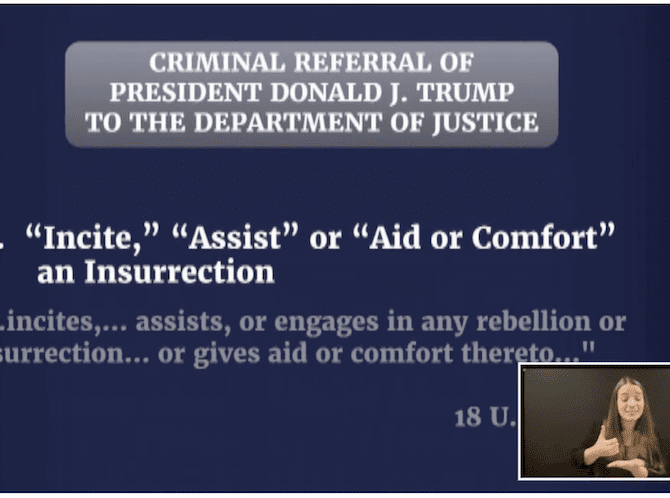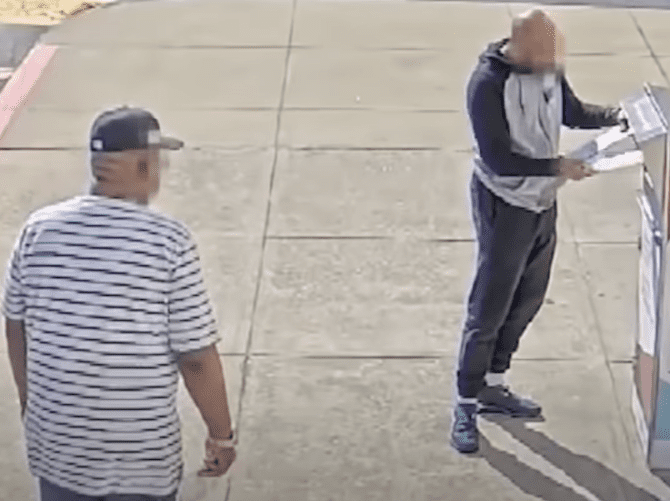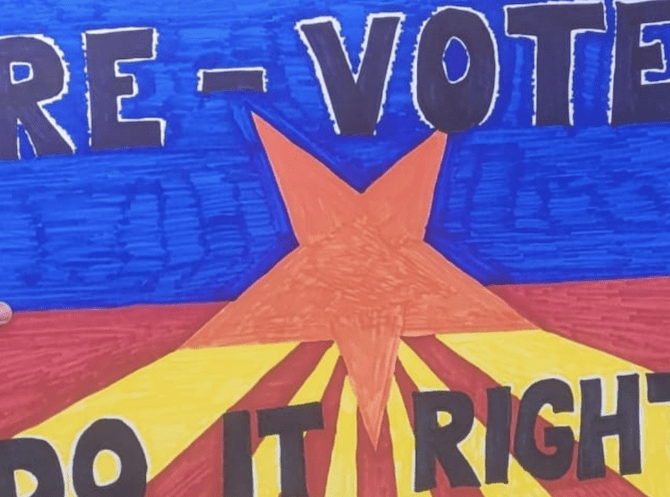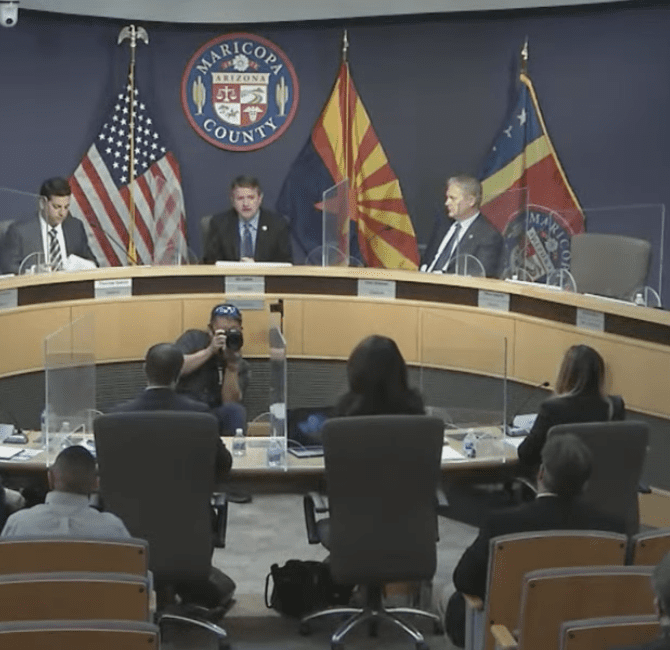Mark Meadows’ Role as Key Co-Conspirator in Trump Coup Comes into View
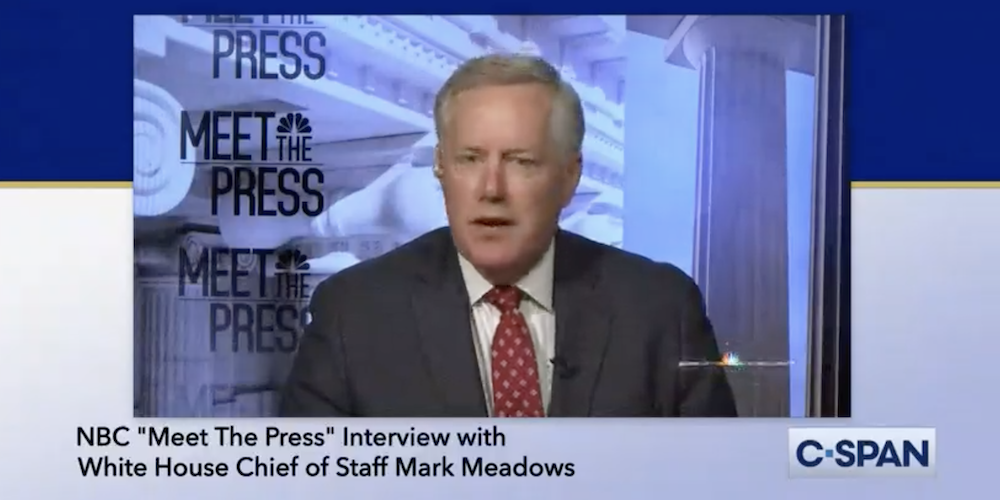
(White House Chief of Staff Mark Meadows. Photo credit: https://www.c-span.org)
Donald Trump’s White House Chief of Staff Mark Meadows wanted a presidential pardon. He had facilitated key stages of Trump’s attempted 2020 coup, linking the insurrectionists to the highest reaches of the White House and Congress.
But ultimately, Meadows failed to deliver what Trump most wanted, which was convincing others in government to overturn the 2020 election. And then his subordinates, White House security staff, thwarted Trump’s plan to march with a mob into the Capitol.
Meadows’ role has become clearer with each January 6 hearing. Earlier hearings traced how his attempted Justice Department takeover failed. The fake Electoral College slates that Meadows had pushed were not accepted by Congress. The calls by Trump to state officials that he had orchestrated to “find votes” did not work. Nor could Meadows convince Vice-President Mike Pence to ignore the official Electoral College results and count pro-Trump forgeries.
And as January 6 approached and the insurrection began, new and riveting details emerged about Meadow’s pivotal role at the eye of this storm, according to testimony on Tuesday by his top White House aide, Cassidy Hutchinson.
Meadows had been repeatedly told that threats of violence were real. Yet he repeatedly ignored calls from the Secret Service, Capitol police, White House lawyers and military chiefs to protect the Capitol, Hutchinson told the committee under oath. And then Meadows, or, at least White House staff under him, failed Trump a final time – although in a surprising way.
After Trump told supporters at a January 6 rally that he would walk with them to the Capitol, Meadows’ staff, which oversaw Trump’s transportation, refused to drive him there. Trump was furious. He grabbed at the limousine’s steering wheel. He assaulted the Secret Service deputy, who was in the car, and had told Trump that it was not safe to go, Hutchinson testified.
“He said, ‘I’m the f-ing president. Take me up to the Capitol now,’” she said, describing what was told to her a short while later by those in the limousine. And Trump blamed Meadows.
“Later in the day, it had been relayed to me via Mark that the president wasn’t happy that Bobby [Engel, the driver] didn’t pull it off for him, and that Mark didn’t work hard enough to get the movement on the books [Trump’s schedule].”
Hutchinson’s testimony was the latest revelations to emerge from hearings that have traced in great detail how Trump and his allies plotted and intended to overturn the election. Her eye-witness account provided an unprecedented view of a raging president.
Hutchinson’s testimony was compared to John Dean, the star witness of the Watergate hearings a half-century ago that led to the resignation of President Richard Nixon for his aides’ efforts to spy on and smear Democrats during the 1972 presidential campaign.
“She IS the John Dean of the hearings,” tweeted the Brooking Institution’s Norman Eisen, who has written legal analyses on prosecuting Trump. “Trump fighting with his security, throwing plates at the wall, but above all the WH knowing that violence was coming on 1/6. The plates & the fighting are not crimes, but they will color the prosecution devastatingly.”
Meadows’ presence has hovered over the coup plot and insurrection. Though he has refused to testify before the January 6 committee, his pivotal role increasingly has come into view.
Under oath, Hutchinson described links between Meadows and communication channels to the armed mob that had assembled. She was backstage at the Trump’s midday January 6 rally and described Trump’s anger that the crowd was not big enough. The Secret Service told him that many people were armed and did not want to go through security and give up their weapons.
Trump, she recounted, said “something to the effect of, ‘I don’t f-ing care that they have weapons. They’re not here to hurt me. Take the mags [metal detectors] away. Let the people in. They can march to the Capitol from here.’”
As the day progressed and the Capitol was breached, Hutchison described the scene at the White House from her cubicle outside the Oval Office. She repeatedly went into Meadows’ office, where he had isolated himself. When Secret Service officials urged her to get Meadows to urge Trump to tell his supporters to stand down and leave, he sat listless.
“He [Meadows] needs to snap out of it,” she said that she told others who pressed her to get Meadows to act. Later, she heard Meadows repeatedly tell other White House officials that Trump “doesn’t think they [insurrectionists] are doing anything wrong.” Trump said Pence deserved to be hung as a traitor, she said.
Immediately after January 6, Hutchinson said that Trump’s cabinet discussed invoking the 25th Amendment to remove a sitting president but did not do so. She also said that Meadows sought a pardon for his January 6-related actions.
Today, Meadows is championing many of the same election falsehoods that he pushed for Trump as a senior partner at the Conservative Partnership Institute (CPI), a right-wing think tank whose 2021 annual report boasts of “changing the way conservatives fight.”
His colleagues include Cleta Mitchell, a lawyer who pushed for Trump to use every means to overturn the election and leads CPI’s “election integrity network,” and other Republicans who have been attacking elections as illegitimate where their candidates lose.
Hutchinson’s testimony may impede Meadows’ future political role, as it exposes him to possible criminal prosecution. But the election-denying movement that he nurtured has not gone away. CPI said it is targeting elections in national battleground states for 2022’s midterms, including Arizona, Georgia, Florida, Michigan, and Pennsylvania. Trump did not give Meadows a pardon. But in July 2021, Trump’s “Save America” PAC gave CPI $1 million.



